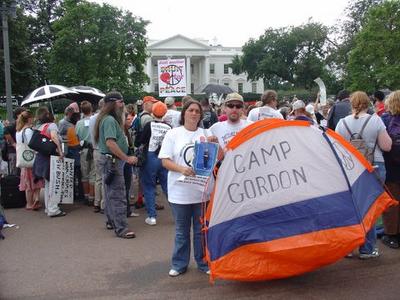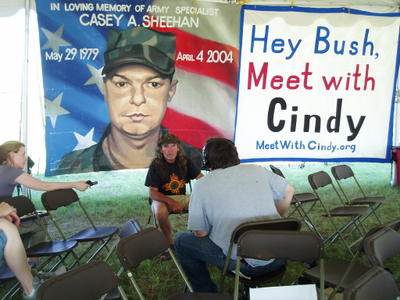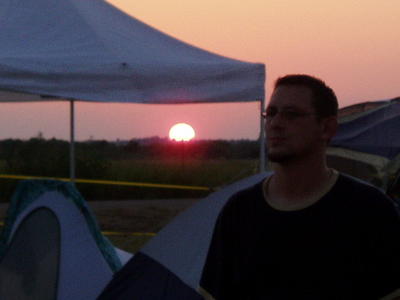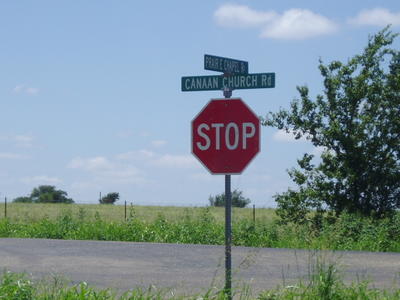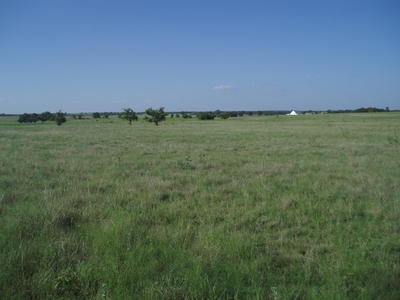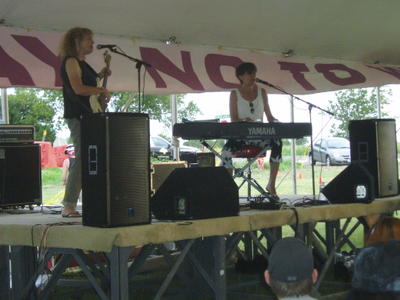Civil Disobedience at the White House
I was among the folks who took part in the mass action of nonviolent civil disobedience in front of the White House on Monday, September 26. I was part of the Camp Casey affinity group, which participated alongside numerous other groups, well over a thousand people in all. A dozen or so of us carried tents that Ann Wright had bought along the Bring Them Home Now Tour, onto which we had written "Camp Ken," "Camp Patrick," and a number of other names.
I carried “Camp Gordon,” for Gordon Gentle, a Scottish soldier from the Royal Highland Fusiliers, killed by a roadside explosion in Basra in June of 2004. I know about him only because during a candlelight vigil on one of the last nights of our occupation of Crawford, Texas, chance had me place my candle beside a cross that bore his name. I decided to let his family know – whatever their position on the war might be - that he had been honored in this small but significant way. Turns out his mother, Rose Gentle, is anything but quiet about her story, and when I got in touch with her she let me know that she was coming to Washington for the antiwar events of this past week. She fit right in with her Amercian counterparts, the Gold Star Families For Peace, and the opportunity to spend some time with her was a high point for me.
It was Ann Wright’s idea to use the tents to bring Camp Casey right to the presidential doorstep. We marched alongside numerous other affinity groups, having met and rallied at the A.M.E. church. The police blocked the streets as we proceeded to the Ellipse, at which time our group briefly detoured to pick up our tents. As we approached the White House, the thick and loud crowd of supporters cheered us on. A man stopped me to pose a quick photograph, and I saw that he was with Rose Gentle. It was a proud moment to have my picture taken with one arm around her, and the other holding up the tent.
We carried the lightweight 5 x 7 tents inside the "you will be arrested” area, which was where the clergy and the military families had assembled to ask the White House to open up and meet with them. Rebekah and I eventually passed our tents back over the barricade to supporters, after we saw that the rest of the tents had already been passed back beyond the police barricade.
When the request for a meeting was refused, we all sat down and ignored the warning to disperse. There was some singing, some chanting, and some improvising on the part of the U.S. Park Police, who were caught unprepared for the number of people who were prepared to brave arrest.
They arrested Cindy Sheehan first. The mainstream media having gotten their money shot, went back to Hurricane Rita coverage. After filling a few paddy wagons, they brought in DC Metro buses to handle the rest of us. We were nearly 400 strong.
While we chanted and were slowly carted away, people passed out water and snacks, with one of the cops helping to bring water to us. Some cheered the people being arrested. My group was chanting "you've got the wrong guy" or "arrest bush" as people were handcuffed and taken away. Lisa Fithian organized a pee circle, enabling several women to fill improvised receptacles out of view of everyone except perhaps the snipers on the White House roof. I aided the cause by cutting off the top of a water bottle with a soda can tab as the circle tightened and was sealed with a banner.
Several folks lined themselves up, surrendering easily, but a bunch of us (Lauren, Rebekah, Lori, Debbie, and a few others) saw this as too sheepish for our taste. We decided to lock arms in a circle, and force the cops carry us to the buses that had pulled in front of much of the crowd. We did this with great pride in representing Camp Casey.
Three hours after Cindy was arrested, the independent media still had their cameras rolling. Scott from Truthout has some fine footage.
The police kept asking me if I was going to stand up. I let them know that I would not resist them, but that I would not get up. Two of them carried me away from our circle (our plan was to loosen our arm lock when the cops removed one of us by lifting us off of the ground), still in my sitting position, as I heard “arrest Bush, not Jesse” being shouted.
I think they tied my plastic handcuffs a little tight because of my refusal to stand up. This also happened to Lori, and perhaps others. Once incarcerated we were not mistreated and we remained cordial in our relationship with law enforcement. Each busload of folks had their own unique experience.
Fellow Ditch Witch and Camp Casey alumni Lauren Sullivan writes:
James has film of what happened next - the Camp Casey women started moshing on the bus, and when we started pogoing, the whole bus bounced up and down. Code Pink was arrested right behind us, and as they were put on the bus, they began jumping up and down too, which made it even crazier. It was so out of control they couldn't process us, and we all screamed out the windows all the way through DC, past Camp Casey on the mall, with people on the streets either staring or waving and cheering.
The buses were gender segregated. I sang my song “Sons and Daughters" on our bus as the cops began to take our photos, and we stomped our feet to keep rhythm. There were four guys who had dressed in orange prison jumpsuits for the occasion. When they led us (in small groups) to the bathroom, they cut off our plastic handcuffs. They then put our new cuffs on in front, rather than in back, making it slightly more comfortable, and enabling a number of people to slip their hands out.
Some of the women hid their cell phones in their bras. I hear that one group was able to order pizza to the Anacostia Park station. Our bus was given sandwiches and bottled water that tasted funny. We were allowed to roam around our bus at times, and at one point one of our officers held his cell phone up so that we could yell "hello" to his girlfriend as he explained why he still wasn't home at 2 in the morning. I overheard another officer saying that they had been completely unprepared for 400 people, and that he was going to buy a flat screen HDTV with all the overtime.
We spent at least eight hours on the bus. At one point I urged Nick Przybyla to pull the “stop requested” rope, which he gladly did. After having our citations written (for demonstrating without a permit), and after some other paperwork inefficiencies, we were taken off the buses and into holding areas. We were there for a number of hours, where the male and the female pens could at least see each other through a fence. People were singing, sleeping on the floor, and a few were still trying to get out of their handcuffs. After a few hours we proceeded on into the main building, where more documents were processed and we were thoroughly fingerprinted. The slow churning bureaucracy eventually had us sitting in a hallway, awaiting the return of our possessions. By this time, the cops wanted to go home as much as we did.
I was one of the last people released at about 4:30am. Cheryl (one of the first people arrested, who had already been sprung) was waiting for me outside the station grounds, wrapped in a blanket. A Camp Casey-esque system had been arranged, effectively taking care of us from the outside. Our support group (Elliot, Zac, Mary Ellen, James, Cheryl, Cree) had arranged shuttles, adapted to getting moved around by the police, and took phone calls. Many of us had written Elliot's number on our bodies, though I never needed to make the call. James was there in a flash to take us to Elliot’s, where there was beer and food waiting for us, and a sign welcoming the Camp Casey Detainees posted on the front door.
After a sleepy cab ride up to our hotel, I was left with enough time to pack my bags, have a shower, grab less than an hour of sleep, and then make for the Metro and my flight home. When we took off I could see the Camp Casey tent still standing at 15th St. and Constitution Ave. – in the shadow of the Washington Monument.
